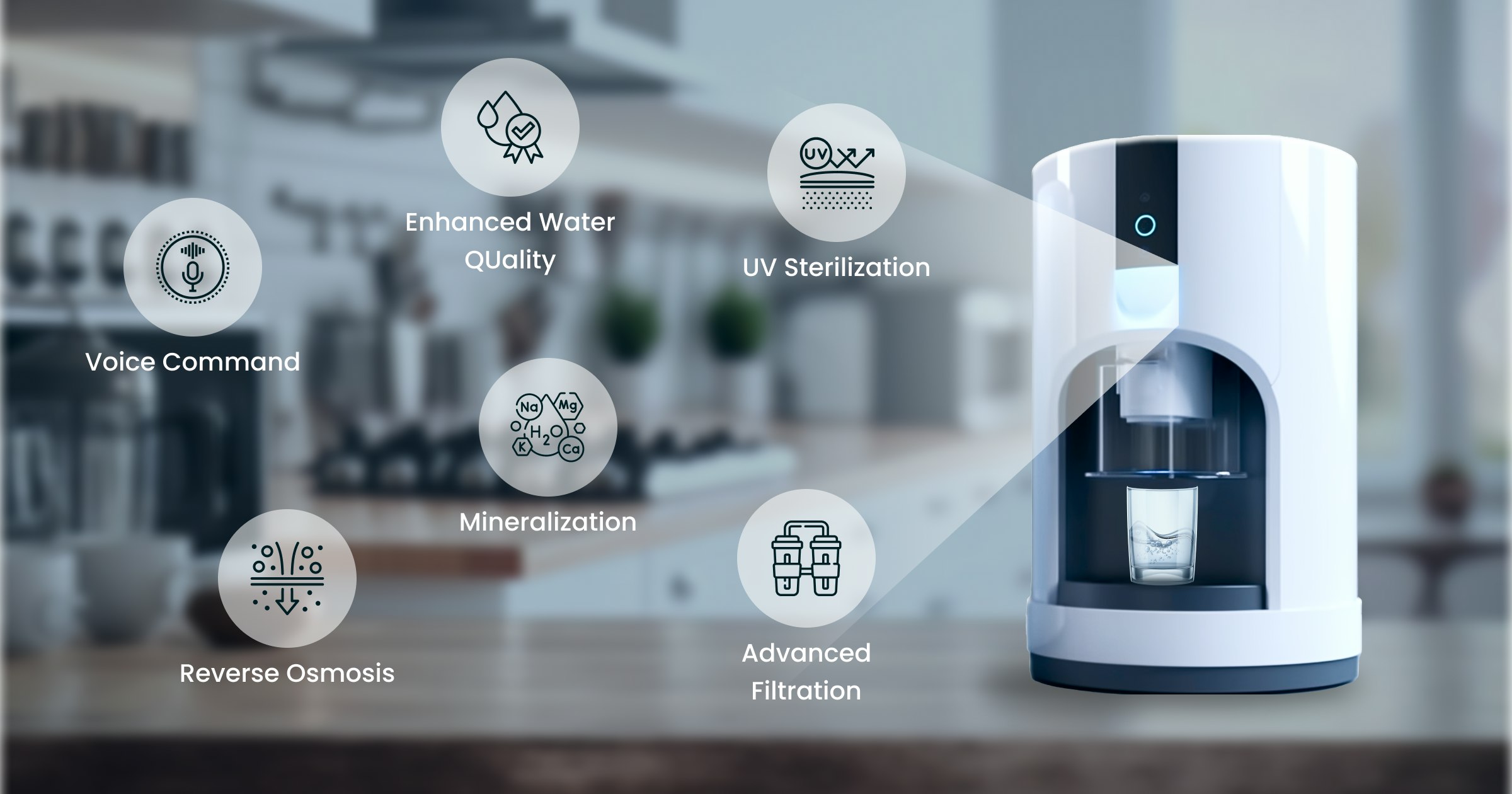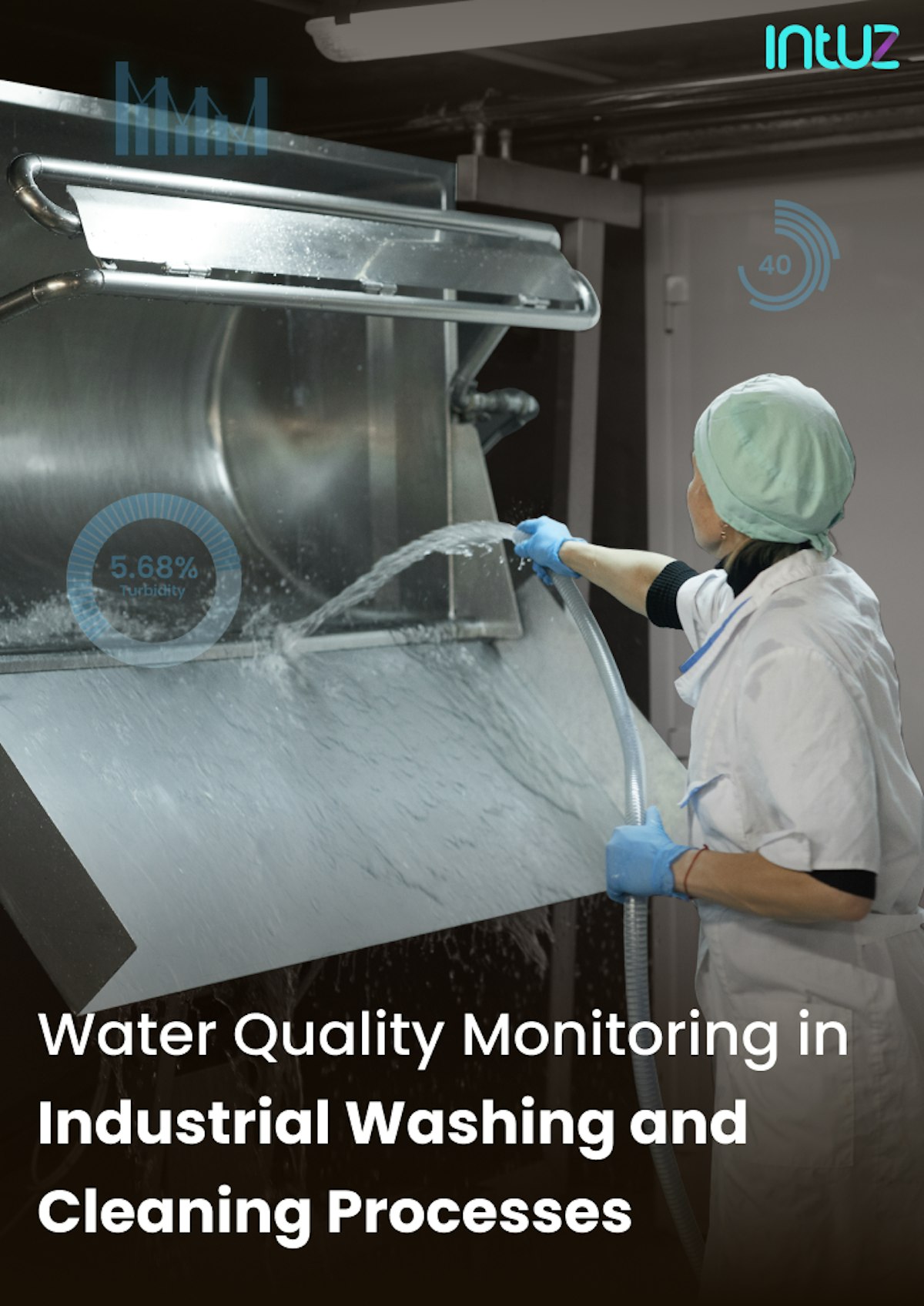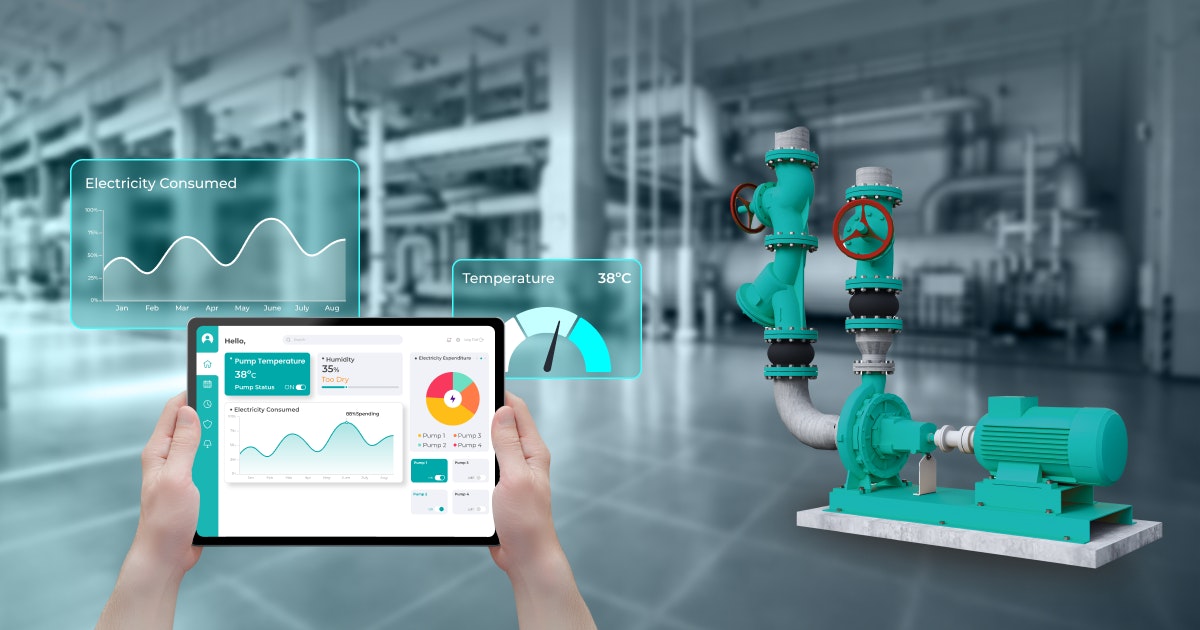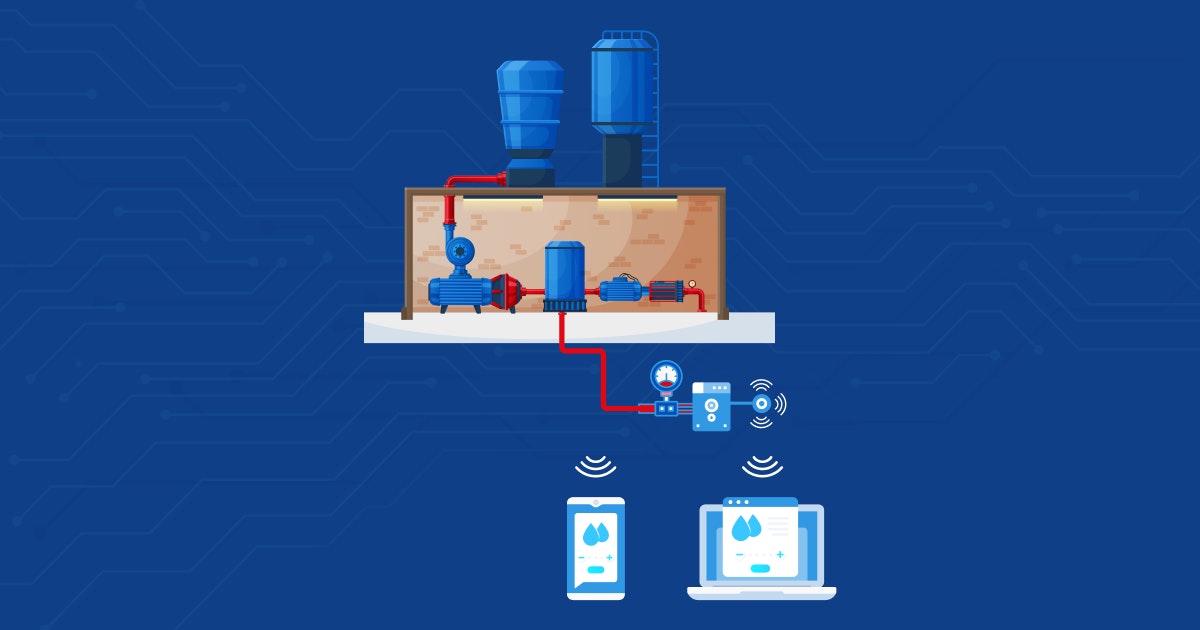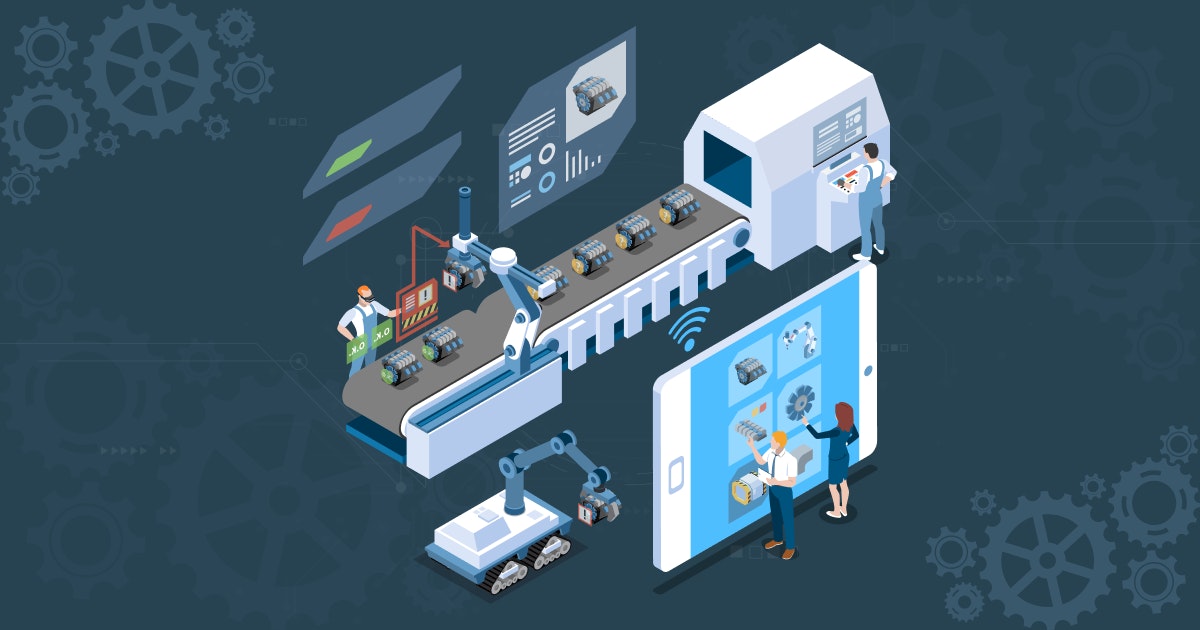Table Of Content
IoT-Enabled Smart Water Purifier
Understanding the distinctive characteristics and advantages of smart water purifiers requires a comparison with traditional water purifiers. In contrast to conventional cleaners, which rely on manual operations and basic filtration techniques, smart water purifiers use IoT technologies to improve and automate purification.
1. Automation and connectivity
A smart water filter uses IoT technology to streamline and automate filtration. Their IoT sensors and networking capabilities allow seeing, gathering, and analyzing data in real-time.
2. Remote Administration and Control
Intelligent water purifiers have the possibility for remote management and monitoring. Through smartphones or other connected devices, users may get details on the purification procedure, the filters' condition, and the water's quality.
3. Real-time Alerts and Notifications
When filters need to be replaced, when maintenance is required, or if there are water quality issues, IoT-enabled purifiers alert consumers in real time. This guarantees prompt actions and promotes continued peak performance.
Innovate Your Water Purifiers with Our IoT Expertise!
Explore ServicesHow Does a Smart Water Purifier Work?
A smart water purifier combines cutting-edge water purification technology with Internet of Things (IoT) capabilities to deliver efficient and useful water filtration. The apparatus often has many filtering stages to remove pollutants, toxins, and pathogens from the water, such as activated carbon, sediment, and reverse osmosis. Thanks to the IoT integration, the cleaner may communicate with a smartphone or a centralized control system by connecting to the internet.
A smart water purifier uses modern technology to provide clean, safe drinking water. This is how it usually goes:
- Filtration: To provide a cleaner starting point for purification, smart water purifiers use numerous filters to remove larger particles, silt, and debris.
- Activated Carbon Filtration: After passing through activated carbon, the water is effectively cleaned of impurities like chlorine, chemicals, and bad odors, leaving drinking water with a cleaner flavor and no odor.
- Reverse Osmosis: To achieve the highest purity level, some intelligent purifiers use reverse osmosis, which involves pushing force on water through a semipermeable membrane to remove minute pollutants, including bacteria, viruses, heavy metals, and dissolved particles.
- UV Sterilization: UV sterilization is used as an additional layer of disinfection to eliminate any leftover bacteria, giving users peace of mind and further ensuring the safety of the water.
- Mineralization: Essential minerals are returned to the cleaned water to improve the taste and nutritional content, providing a healthier and more energizing drinking experience.
IoT-Based Smart Water Quality Monitoring: Evolution, Benefits, and Challenges
Learn MoreBenefits of Using a Smart Water Purifier
The benefits of using a smart water purifier are numerous. These purifiers guarantee clean and wholesome drinking water with cutting-edge filtration, real-time monitoring, smartphone connectivity, and configurable settings. The benefits of a smart water purifier include improved water purity, convenience, and well-being
1. Advanced Filtration and Purification
Smart water purifiers guarantee comprehensive filtration, eliminating impurities that regular cleaners could miss. They offer clean and safe drinking water by removing dangerous compounds, sediments, and microbes.
2. Real-Time Monitoring and Alerts
Real-time water quality and filter lifespan monitoring are available with IoT-enabled purifiers. Filter replacement reminders are sent to users, ensuring they always have clean water access.
3. Integration with Smartphone Apps and Voice Assistants
Smart water purifiers offer remote monitoring and management of the purifying process to consumers by connecting them to smartphone apps. Hands-free control is made possible by voice assistants, enhancing user convenience.
4. Customizable Settings and User-Friendly Interfaces
These purifiers offer programmable settings that adjust purification levels based on the water source and user preferences. Thanks to the user-friendly UI, the purifier's operations are simple to control and keep track of.
5. Enhanced Water Quality and Health Benefits
Smart water purifiers deliver healthier and better-tasting water by removing pollutants and toxins. They ensure that pesticides, heavy metals, and other hazardous chemicals are removed, enhancing general well-being.
Different Types of Smart Water Purifiers
Numerous varieties of smart water purifiers are on the market, each created to satisfy particular needs and installation specifications. Let's examine a few of the popular categories of intelligent water purifiers:
1. Point-of-Use (POU) Smart Water Purifiers
Usually, these purifiers are mounted at certain water taps or showers. POU purifiers offer on-demand access to clean water at the point of usage. They work well for focusing on locations where there are issues with the water quality or where filtered water is required for particular jobs.
2. Whole-house smart water purifiers
Whole-house smart water purifiers are placed at a home's or structure's main water inlet. These purifiers offer complete solutions to guarantee high-quality water throughout the entire building.
3. Countertop Smart Water Purifiers
Compact and transportable, countertop smart water purifiers can be set up on kitchen countertops. These purifiers make clean drinking water easily accessible without installation or plumbing adjustments.
4. Under-Sink Smart Water Purifiers
Under-sink smart water purifiers are installed and connected to the current water supply. They maximize space usage while continuously supplying clean water for consumption and cooking. These cleaners don't take up any counter space and are covertly hidden away.
5. Portable Smart Water Purifiers
Portable smart water purifiers are intended for use while traveling, outside, or in locations with restricted access to safe drinking water. These vacuums are small, light, and frequently run on batteries or USB power. They employ various purification techniques such as filtration, UV sterilization, and chemical treatment to make water safe for drinking.
IoT for Water Quality Monitoring and Enhanced Crop Yields
Learn MoreConclusion
In conclusion, the development of IoT-enabled smart water purifiers has significantly changed the water purification industry and made access to clean, safe drinking water possible. These sophisticated purifiers have revolutionized water safety through their cutting-edge filtering technologies, real-time monitoring capabilities, seamless connection with smart devices, and various options to suit different demands.
Book a Free 45-minute Consultation with IoT Experts Today! Get a customized roadmap and strategies to integrate IoT into your water purifiers.
